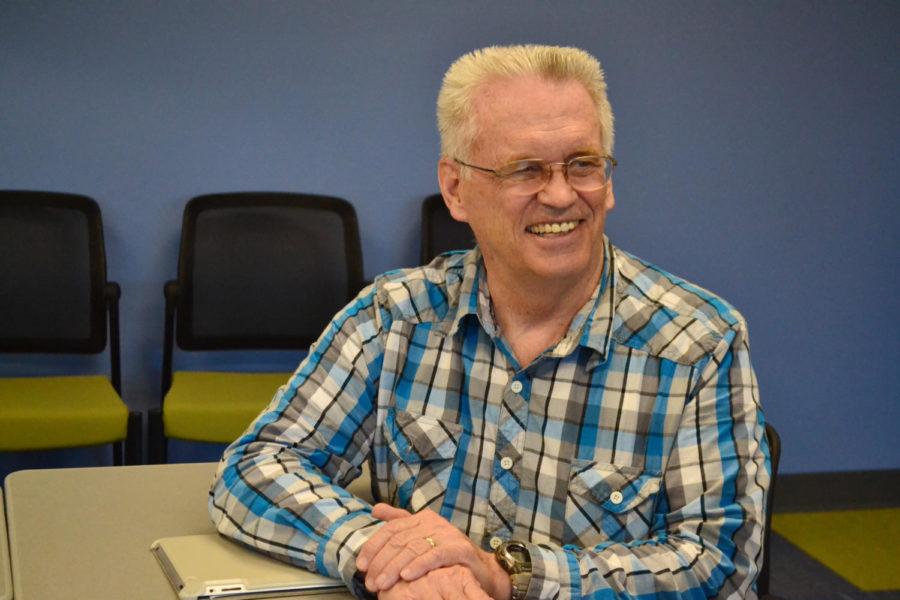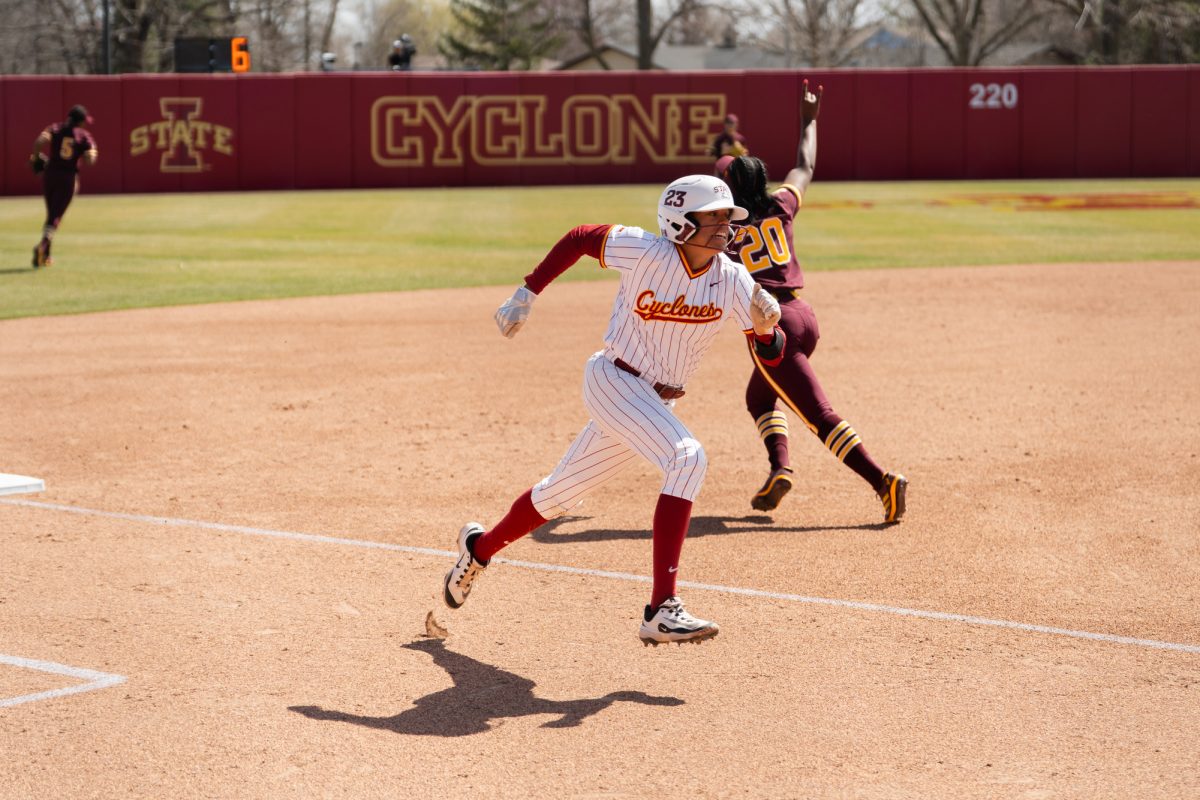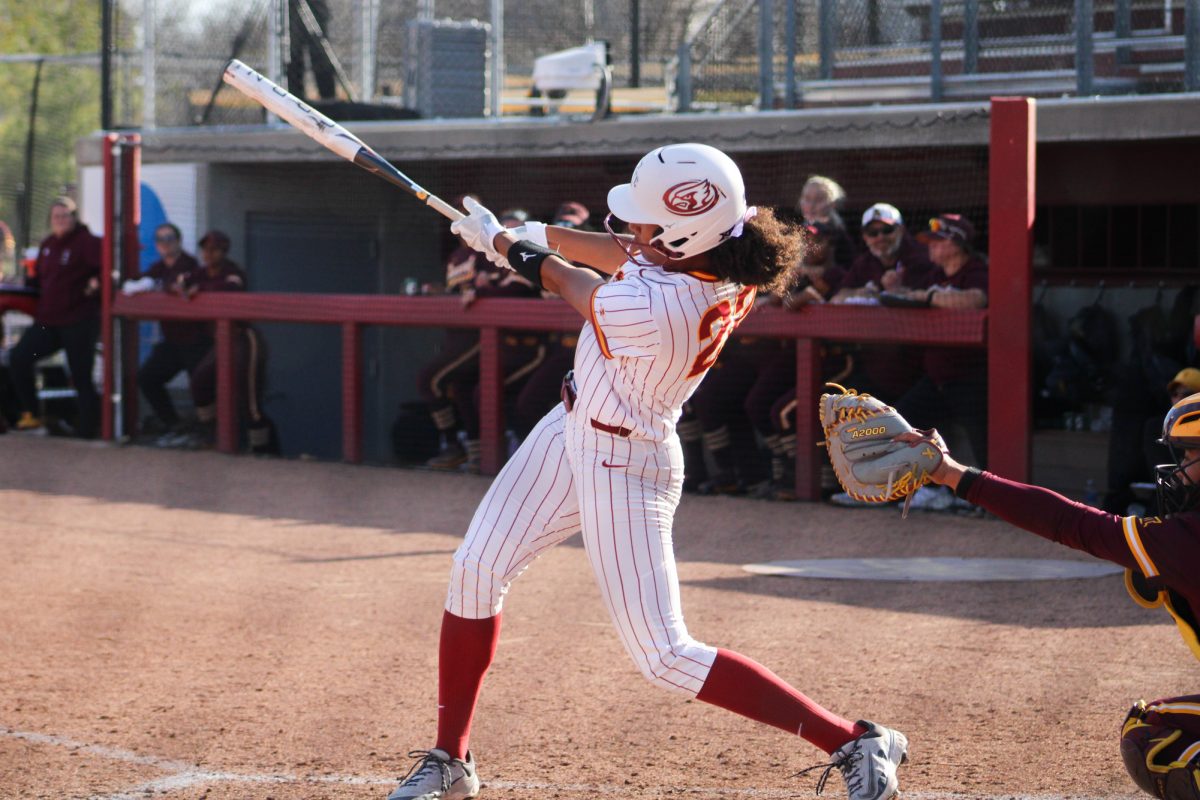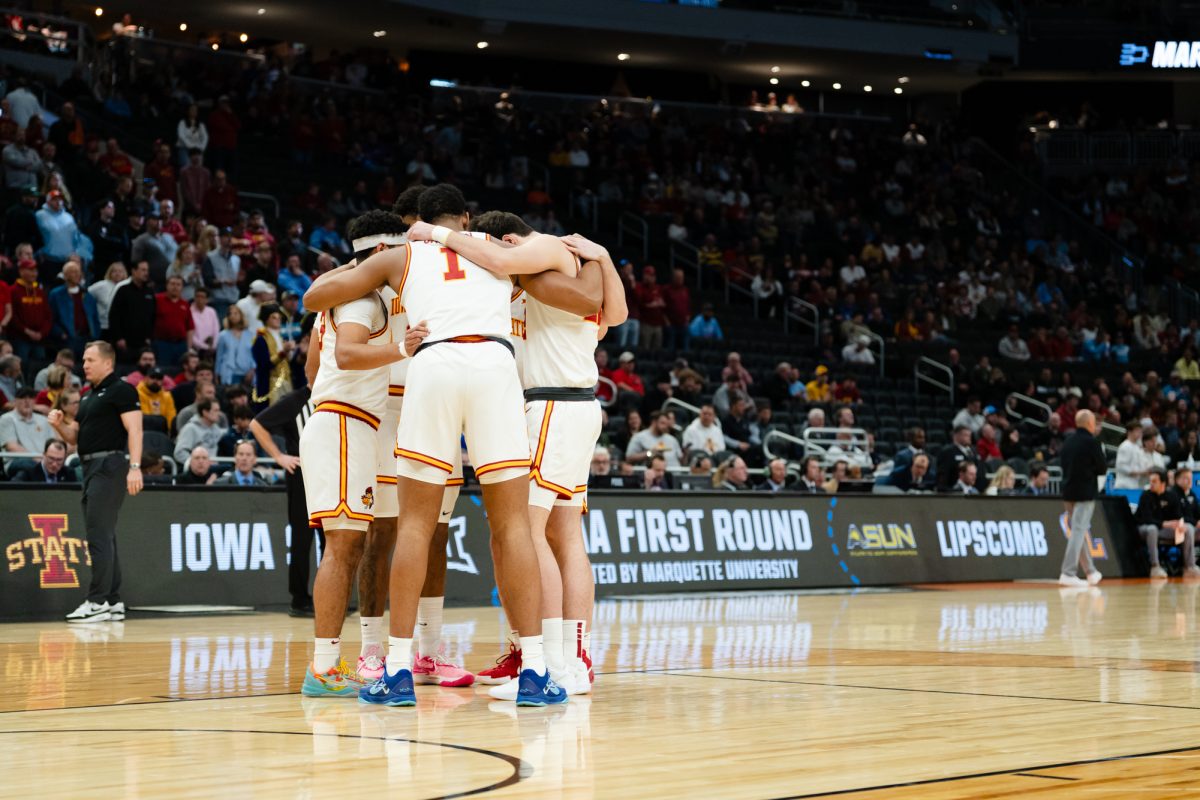One-on-one with Dr. Elwynn Taylor
Photo: Brian Achenbach/Iowa State Daily
Dr. Elwynn Taylor is an Iowa State professor in Agronomy and Climatology. Dr. Taylor is an Iowa Ambassador for NASA’s Jet Propulsion Lab, one of a few individuals responsible for educating the Iowa public on NASA’s research.
July 11, 2013
Dr. Elwynn Taylor is an Iowa State professor in Agronomy and Climatology. Taylor received a degree in Botany and Physics with a Climatology minor from Utah State University, before moving on to receive his PhD in Botany and Meteorology from Washington University in St. Louis. Dr. Taylor is an Iowa Ambassador for NASA’s Jet Propulsion Lab, one of a few individuals responsible for educating the Iowa public on NASA’s research.
What made you interested in the NASA Ambassador position?
When I went into the military, they made me in charge of how weather affects people and operations and I became the expert on using satellites to sense conditions on the ground, on the battlefield, wherever we had to live and operate. When I left active duty, I was the person who knew the most about our environmental satellites. When the opportunity came to work in the academic world, I came to Iowa State to work as the university’s climatologist. I enjoy teaching and I think it’s essential. Education is a better way for people to make decisions in the world than is propaganda.
What do you think about NASA’s efforts in terms of educating the public?
I think it’s essential, and I am very pleased with it. They realize that many of their programs that are expensive don’t have an instant payback where people can say, “that’s a good investment,” so people must love it. They need to love the pictures from the great telescopes in space. They need to be excited about astronauts. They need to be excited about pictures of the whole Earth. And they need to realize that something like an El Niño or a La Niña could affect us here in the midwest even though it’s down on the equator. Suddenly, we can understand our world better.
Do you think the level of inspiration in children has gone down or up since the 1960s and 1970s?
I think in large major it has gone up. The children know so much now. They learn things in first and second-grade that you were lucky to learn in highschool that I was lucky to learn in college. When you’re 5, 6, 7, 8, 9 years old, the whole world is abstract, you’re good at learning abstract things. The younger you start understanding these things the better your understanding will be and the easier it comes.
How do you feel about the NASA budget cuts?
We do know we’re spending way too much money as a country. Eventually it catches up with a nation. We all feel bad when a budget of something we love is cut. But we also have to realize that there is not infinite resources to do everything we imagine doing.
Do you think putting more money into something like NASA would help kickstart the economy?
Putting more money into anything where we spend it is a kickstart to the economy, especially if they spend locally. That’s a constraint you could put on government money, is where they can spend it. This way you could stimulate the right economy if they have an idea that one economy is more important to stimulate than another.
Do you think the K-12 teachers are very competent and willing to teach the latest research coming out of NASA and other research facilities?
We’ve been teaching this 15 years now to 30 to 60 in service teachers, so by now we have at least a teacher in every school that has at least an outlook on things and contributions from NASA. Sometimes I will come in to the class and talk to the class and sometimes I’ll come in and talk to an entire high school and make it a regular program.







